Do you find that people aren’t willing to pay for discovery or strategy sessions? That they don’t value your advice enough to invest money to put it into action? Here’s how to fix that problem and how paid discovery fits into your sales process!
Discovery is basically the process in the initial stages of taking on a client where you define what the scope of the project is and what approach you need to take. This is sometimes referred to as road mapping or a strategy session.
How Do You Get People to Value Your Advice and Pay For ‘Discovery’?
It can be a tricky thing understanding how to sell someone a product before they’re ready to make a bigger commitment, right?
Think of paid discovery as a slice of cake, you take discovery or road mapping, slice it out of the bigger project and sell it as a separate product in the overarching process. This will also build trust with your clients quicker.
The Mavericks Sales System
This is the sales process that we teach everyone in the sales accelerator and Mavericks club.
Let’s get into it!
So, say someone puts their hand up and expresses interest in what you’re doing, the very first thing we do is pre-qualify them with a series of questions we ask very quickly to assess whether we think this person is a good fit and if there might be an opportunity to work together.
Then the first touch point we have with someone is what we term the triage call, this is a 15 minute call where we ask a few more questions just to find out if we can actually help them.
We try to qualify their budget, establish if they are the main decision maker and of course make sure they have a need that we can actually help them with. You need to control the conversation and let them know you have an agenda.
If they make it through to the triage call we then dive deeper and move onto what we call a strategy call or a growth plan.
Between those two calls we send them some homework and this is designed to do two things;
- To allow them to self assess how much work they need to do
- To position us as the trusted authority
And by the way, we have a 100% strike rate of people turning up to a growth plan or a strategy call having done their homework. So everyone who gets to the stage of a strategy call with us has done the work and come back and said “This is one of the most useful exercises I've done in recent history, it has been really eye opening, and I've got a lot of work to do.”
After this comes the strategy call, they’ll either close into one of our programs or we’ll schedule a follow up call to discuss logistics and get them onboarded. This stage also may result in deciding that we’re not a good fit or it’s not for now, they’ll be put into follow up and we’ll part ways as friends. I would suggest, if this is a new concept for you, that you sell paid discovery on the second call, the strategy call.
When Should You Sell Paid Discovery?
There are a few clues that tell you someone is right for a digital roadmap session. One is when the client has never done this before, they want something complex built with a bunch of automated third party things talking to each other. All these variables require paid discovery to dive deeper and do a technical audit and analysis of what is required.
The other instance which is more common, is if they don’t know what they’re doing. Say they want a website built or they’re interested in e-commerce, in this case you want to do paid discovery because you need them to understand all the moving parts that are involved. This is also a key part of the process so that you can make sure you answer all questions before picking up the crayons and building stuff. You need to have a clear plan of attack.
I like to think about paid discovery as somewhere around 10% to 20% of the overall price of the project. You need to know your numbers and understand what it costs to deliver a paid discovery, and you need to make sure it’s profitable.
Remember that the whole purpose of selling the strategy session is to parlay that into a bigger project.
BANT Framework
The BANT framework refers to budget, authority need and timeline.
- B – Do they have a realistic budget?
- A – Authority meaning are they the decision maker?
- N – Need: do they have a need you can actually help them with
- T – What is the timeline? Is it now or next year?
Establishing the above is the purpose of the triage call.
Digital Roadmap Assets
The purpose of the digital roadmap is to get clear about what it is we are building with the client, why we are building it and what success looks like. It is basically a strategy document.
There are three assets that we use when running a digital roadmap session.
Slide Deck
The first asset is our slide deck and this does one of two things; it gives people something to refer to and a place to rest their eyes, it also gives them a sense that you’ve done this before it isn’t your first rodeo.
(Check out this podcast live on the Digital Mavericks Facebook Page to see this breakdown!)
Facilitator Workbook
In addition to that we have the facilitator workbook, this is your workbook with a clear outline of agenda and concepts to work through. This asset provides a business overview, who are they? What do they do? Why are they here? Serving as a tool for you to teach from and coordinate the session.
Participant Workbook
This is very similar to the facilitator workbook, it is blank and is filled in by participants throughout the workshop. Giving them the opportunity to define a vision, mission or outcome and to document their learning. By the end of the workshop people are super clear about exactly what they’re trying to do.
If you show up and deliver paid discovery with a professional slide deck, PDFs and workbooks to be filled in…what’s the old adage? How you do something, is how you do everything. They now know what your level of work is and it elevates your position as the expert.
We have a project template available with all the assets you need to run successful paid discovery and how to transition that into a full paid project.
Head over to the Digital Mavericks Facebook group to watch the podcast and see a breakdown of the above assets, or listen to the podcast on Spotify.
Wrap Up
If you’re ready to transform the way you deliver paid discovery and need a little guidance, then click here to request a call with one of my amazing team members!
The Agency Hour Podcast
Check out the episode of The Agency Hour related to this blog.
Episode 30:
Are you still giving away your IP for free? Troy and Pete take a deep dive into how to sell and deliver paid discovery.






